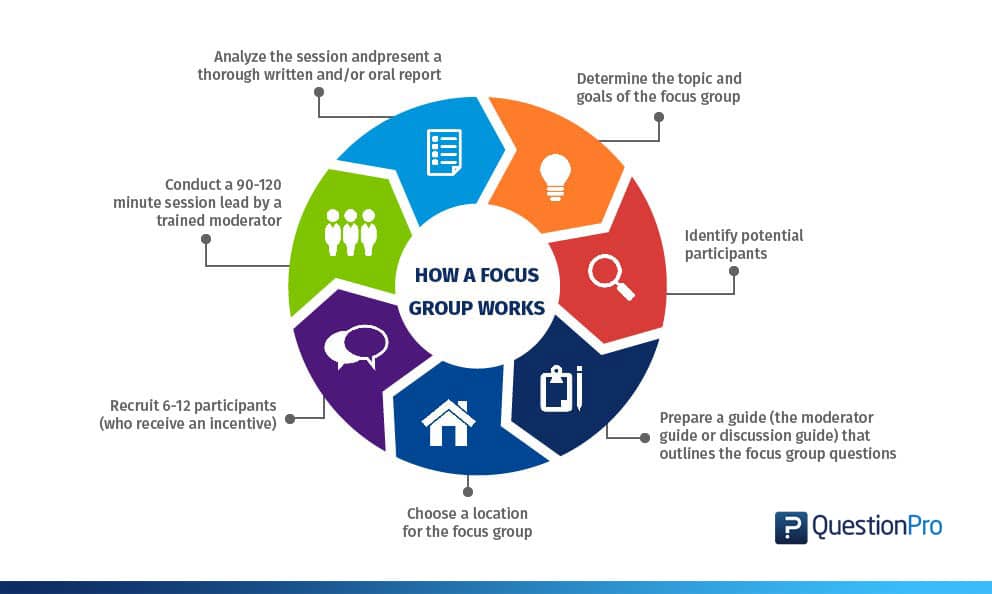Focus Group
A focus group is a method that extracts qualitative data from multiple sources at once using a targeted audience group who participates in group discussions or other collaborative methods on a certain topic.
Technology has broadened the way this method may be implemented. Focus groups don’t necessarily have to meet in person. Video conference tools or teleconference solutions have proven to be not only effective but convenient tools for gathering participants to contribute.
Focus groups are often conducted in a semi-structured manner, using a series of open-ended questions to sugar interactions that answer relevant questions, make suggestions or follow questions, and provide relevant data for purposes relating to the topic.
Focus groups can offer a dynamic source of information. Though the possibilities for original, relevant information using this method are seemingly endless, interpretations and inadvertently suggestions made due to interpretations, can be subjective or present bias in the findings. Measures should be taken beforehand to reduce these disadvantages from affecting the quality of the data or any related suggestions from interpretations.
The following illustrates what the process for preparing a focus group may entail.

References
QuestionPro [Digital image]. Retrieved April 11, 2019, Retrieved from https://www.questionpro.com/blog/focus-group/
Flynn, R., Albrecht, L., & Scott, S. D. (2018). Two Approaches to Focus Group Data Collection for Qualitative Health Research: Maximizing Resources and Data Quality. International Journal of Qualitative Methods. https://doi.org/10.1177/1609406917750781
Onwuegbuzie, A. J., Dickinson, W. B., Leech, N. L., & Zoran, A. G. (2009). A Qualitative Framework for Collecting and Analyzing Data in Focus Group Research. International Journal of Qualitative Methods, 1–21. https://doi.org/10.1177/160940690900800301
